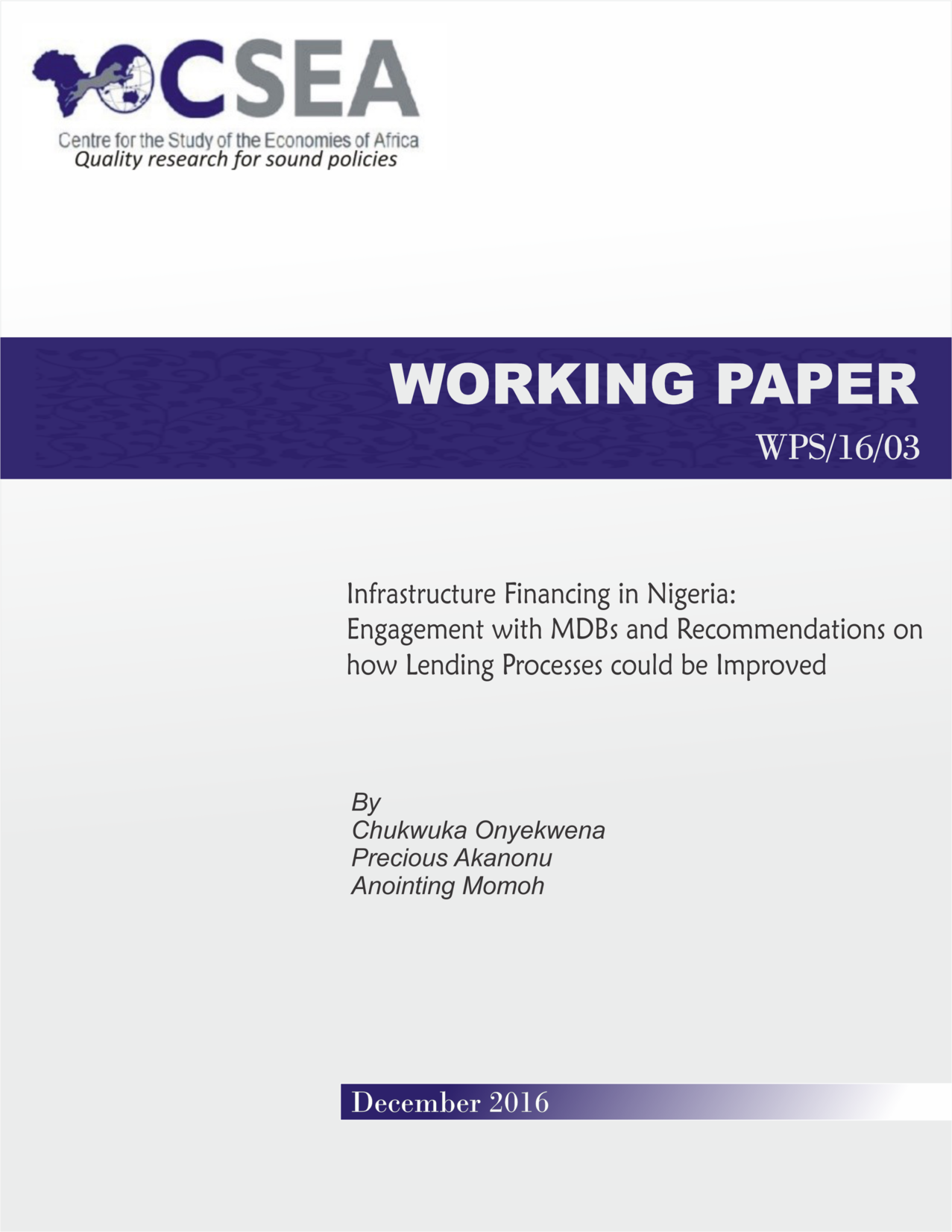Publications

November 3, 2017
Infrastructure Financing In Nigeria:
Similar to most sub-Saharan
African (SSA) countries, Nigeria has a huge infrastructure deficit which
considerably limits efforts towards achieving inclusive growth, sustainable
development, and poverty reduction. With infrastructure stock estimated at
20-25 per cent of Gross Domestic Product (GDP), Nigerias infrastructure stock
is still significantly lower than the recommended international benchmark of 70
per cent of GDP. The 2014 National Integrated Infrastructure Master Plan (NIMP)
estimates that a total of US$ 3 trillion of investments, or US$100 billion
annually, is required over the next 30 years to bridge Nigerias infrastructure
gap. In particular, the Plan estimates that Nigeria will have to spend an
annual average of US$ 33 billion infrastructure investments for the period 2014
-2018. This means that Nigeria will have to more than double its spending on infrastructure
from the current 2-3 per cent of GDP to around 7 per cent to make appreciable
progress in infrastructure development over the next three decades.
